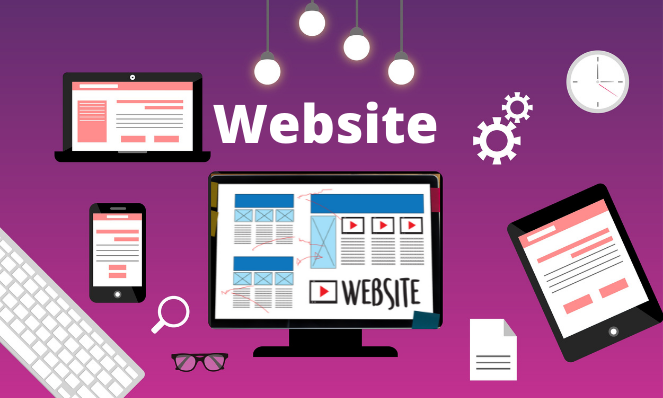Subtotal ₺0.00
The Importance of Websites in Marketing: Why Every Business Needs One
In today’s digital age, having a website is no longer optional—it’s essential. Whether you’re running a small local business or managing a large enterprise, a well-designed website is a cornerstone of your marketing strategy. But what makes websites so crucial to marketing success? Let’s dive into the key reasons why having a website is a game-changer for businesses.
What is the Role of a Website in Marketing?
A website serves as your digital storefront. It’s often the first place potential customers go to learn about your products, services, or brand. Unlike other marketing channels, your website is completely under your control, allowing you to shape the user experience and craft your message.
From enhancing your brand presence to driving conversions, a website is a multifunctional tool that can support your marketing efforts in various ways.
Why a Website is Important for Marketing
- 24/7 Online Presence :A website gives your business a constant online presence, meaning customers can access information about your products or services at any time. Unlike physical stores, your website never closes, providing a platform for customers to engage with your brand whenever they want.
- Credibility and Professionalism :In today’s competitive market, a professional website builds trust and credibility. Most consumers expect businesses to have an online presence, and not having a website could make your business appear outdated or less trustworthy. A well-designed site makes your business look professional, credible, and established.
- Cost-Effective Marketing Tool :A website is one of the most cost-effective marketing tools you can have. Once it’s up and running, you can use it to promote your business, host content, sell products, and capture leads—all without ongoing costs that come with traditional advertising. This makes it an invaluable asset for both small businesses and large enterprises.
- Wider Audience Reach :With a website, your business isn’t limited to a local audience. You can reach customers across the globe. This is especially important for eCommerce or service-based businesses looking to expand their reach beyond geographical boundaries. Paired with digital marketing strategies like SEO, social media, and paid ads, your website can attract a vast range of customers.
- Central Hub for All Marketing Channels :Your website is the central hub for all your marketing efforts. Whether it’s social media, email marketing, or paid ads, all marketing channels should direct traffic back to your website. From there, users can learn more about your brand, explore your offerings, and take action—whether it’s making a purchase, subscribing to a newsletter, or contacting you.
- Data Collection and Insights :One of the most significant advantages of having a website is the ability to track and analyze user behavior. With tools like Google Analytics, you can gather valuable data about your audience—where they come from, how long they stay, and what pages they visit. This data helps you refine your marketing strategies and better understand what works for your business.
- Improves Customer Engagement :A well-structured website makes it easier for customers to engage with your brand. Features like blogs, FAQs, contact forms, and customer reviews all encourage interaction and provide a platform for customers to connect with you. Better engagement often leads to higher customer satisfaction and loyalty.
How to Build a Website That Supports Your Marketing Goals
Now that we’ve established why a website is so important, how can you ensure it works as an effective marketing tool?
How to Apply Effective SEO Strategies
Now that you understand why SEO is important, how can you use it to drive results? Here are a few key strategies:
- Mobile Optimization: Ensure your website is mobile-friendly. With the rise of mobile browsing, it’s crucial that your site works seamlessly across devices.
- SEO-Friendly: Optimize your website for search engines. Use relevant keywords, meta descriptions, and high-quality content to improve visibility on search engine results pages (SERPs).
- Clear Call-to-Actions (CTAs): Encourage users to take action with clear and engaging CTAs, such as “Contact Us,” “Shop Now,” or “Subscribe.”
- Fast Loading Times: A slow website can turn visitors away. Make sure your site loads quickly to keep users engaged and improve your SEO.
- Content-Rich: Populate your website with valuable, informative content that meets the needs of your audience and keeps them coming back.
Conclusion
In today’s digital-first world, having a website is essential for effective marketing. It’s more than just a place to showcase your products or services—it’s a powerful tool that works around the clock to attract, engage, and convert customers. If you haven’t invested in a website yet, now is the time to do so. The benefits are too significant to ignore.

